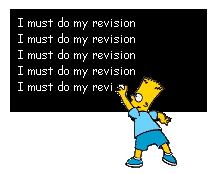8 Point Plan for Revising

Having spent over 20 years guiding parents, I now have my eldest child sitting GCSEs. What advice will I give? How well a child does in exams reflects not just their ability but their attitude and method. Discipline, planning and prioritising do not come naturally to most children. Doing well is about technique (learning how to learn) and motivation. Ultimately, students have to be responsible for their learning and willing to put in the hard work.
For many the standard technique of revising is reading and highlighting. This becomes quite boring, passive and ineffective. Memory needs to be treated like a muscle, so that dull information can be stored. Memorising is a skill that can be developed and improved.
Different techniques obviously work for different people but to stay alert you need to keep changing and varying the revision method.
Brains love colour, variety, surprise and movement. The more interested the brain is, the easier information goes in and stays in.
The left side of the brain is largely used for thinking about words and numbers, while the right side is used for imagination. The right side needs to be engaged. Brains need a hook or association: picture, pattern, colour, rhyme or story connected with other memories. These hooks work best when they are devised by the student. Memorising should be effective, interesting and enjoyable; most students feel bored, anxious and resentful.
- Post-it notes/flash cards
Spotlight key words or phrases on post-it notes all over the bedroom, bathroom mirror, toilet door etc. You can even create flash cards online using apps.ankiweb.net
- Mnemonics/Acronyms
These help to recall information but are not so good for understanding.
- Mind maps
The mind absorbs pictures better than words. Have the main theme in the centre with different branches coming off and sub-divided, using images, symbols, colour and shape.
- Summary page
Keep reducing and condensing notes until all the major ideas of a whole topic are on one sheet of paper. Reconstruct this sheet at the end of each revision session. You remember what you write five times more than what you read. Try this technique: look, cover, write, check.
- Link to a song/rhyme/story
Memorise something linked to a tune or rhyme. Record yourself reading notes and listen to them in bed, walking in the street etc.
- Teach others
Probably the best method there is, as this is not just about memorising but truly understanding. Explaining an idea out loud to a parent, friend or even a teddy in your own words, helps clarify it in your mind. Being asked questions helps to stimulate thinking.
- Practice Papers
Practice, practice, practice is absolutely essential. The active recall of information from memory is the only way to rehearse what you are required to do in an exam. Exams are about recalling information from memory, organising it and applying it. It’s important to practice time management and complete papers under exam conditions but if time is short, write brief plans to recall the key relevant facts.
- Review five times
To commit a fact to long term memory it needs to be reviewed at least five times. Straight after, a day later, week later, month later, a few months later. There is no good substitute for spreading out memorising over time.
Don’t forget that exercise boosts memory and brain power. Adequate sleep is also essential as the brain processes the information you have learned and stores it. Find memory techniques that work for you but make sure whatever you choose, you are actively engaging your brain.
Rachel Vecht writes at educatingmatters.co.uk